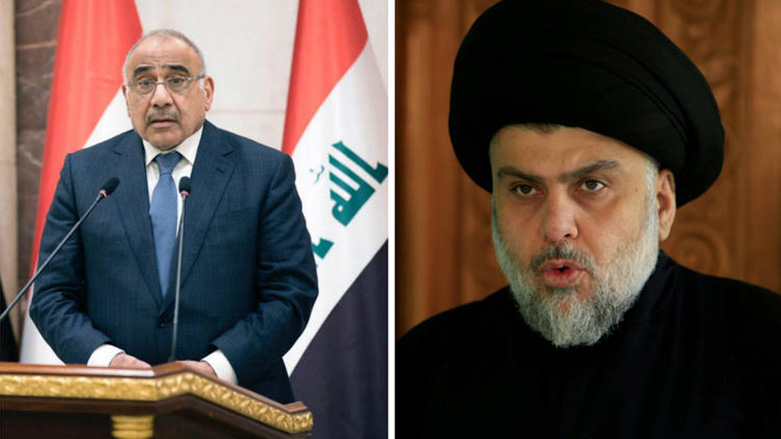Sadr: Abdul Mahdi's resignation does not mean the end of corruption in Iraq

ERBIL (Kurdistan 24) – Influential Iraqi cleric Muqtada al-Sadr said on Friday that the announced resignation of Prime Minister Adil Abdul Mahdi earlier that day would not mean the end of corruption in the nation.
The resignation comes one day after Iraqi security forces killed upwards of forty demonstrators in Baghdad and the southern cities of Nassiriya and Najaf. Since crowds began taking to the streets at the start of October, over 400 have been reported killed, mostly by security forces.
Protesters decry the chronic lack of jobs and government services and blame the low standard of living on widespread governmental corruption. They have since called for radical change in Iraq’s political system, which they say fails to address their needs, but instead serves the interests of a small governing elite.
In a statement published online, Sadr described Abdul Mahdi’s departure as “the first fruits of the revolution and not the last,” while suggesting the nomination of a replacement prime minister through a referendum of five candidates to be offered.
He also suggested that the new prime minister choose his cabinet “far from parties, blocs and, militias and away from sectarian, partisan, nationalist, and factional quotas, as well as activating the role of the judiciary and avoiding the bickering of parliament, whose members are no less corrupt than the government.”
He continued, “Anyone who sympathizes with us within the realm of parliament should involve himself in the formation of the government only by voting with conviction and taking the opinion of the people directly and under independent and non-corrupt supervision.”
One month earlier, Sadr called for early elections just two days after the Sairoon parliamentary alliance—which he leads—announced it would be moving to the legislature’s opposition as a result of the flaring public unrest.
Read More: Sadr’s party to withdraw from Iraqi parliament as protest death toll mounts
Sairoon is at the head of one of the two largest blocs in parliament and came first in last year’s election with 54 seats out of a total of 329. After months of political deadlock, along with its competitor—a coalition led by Iranian-backed entities—it agreed to Abdul Mahdi as a compromise candidate to form the government.
“Brother Adil Abdul Mahdi must appear before parliament to announce early elections under the supervision of the United Nations,” Sadr said at the time in a tweet.
